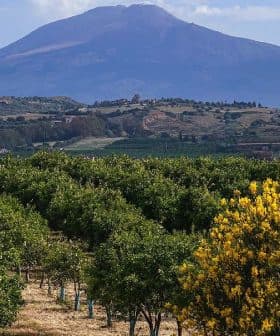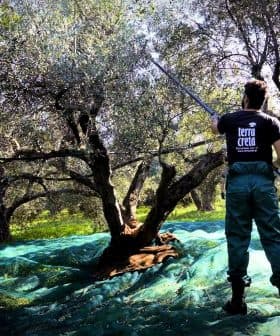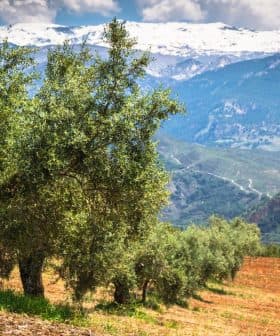The Mindful Production Behind an Award-Winning Greek Producer
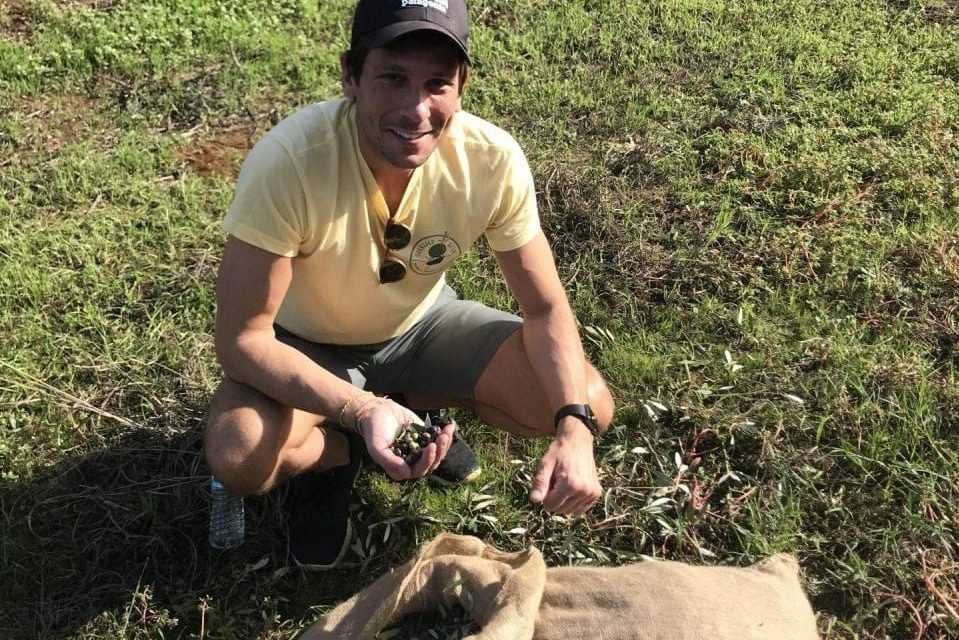
George Gyftakis of Little Gypsy Farms in Greece produces high-quality extra virgin olive oil using a holistic production approach that focuses on letting nature take its course. Gyftakis’ dedication to crafting authentic olive oil has been recognized with a Gold Award at the 2020 NYIOOC, and he hopes to educate consumers on the importance of high-quality olive oil while promoting healthy eating and natural food production.
Flanked by mountains and the sea, thousands of Koroneiki olive trees dominate the landscape of the southwestern coast of the Peloponnese peninsula, with their green and silver foliage glittering under the bright Mediterranean sun.
At Little Gypsy Farms, a modest but vivacious producer juggles several responsibilities: expertly crafting award-winning extra virgin olive oil, while vocally promoting quality food production and healthy eating.
We control the growing, harvest, pressing and bottling, achieving a high quality that you can taste.
George Gyftakis’ philosophy behind making olive oil is to let nature work its magic and reap the benefits at harvest time, barely intervening with the natural growth and development of the olive trees.
“Most farms have artificial means to boost production,” Gyftakis told Olive Oil Times. “We find that letting nature take its course produces a cleaner, more nutritionally dense end result.”
See Also:Producer Profiles“Of course, this means some years will yield less oil,” he added. “But many times the quality, acidity and flavor profile will be better as the tree must work harder in years of light rainfall to produce fruit.”
Wanderers searching for a home, it was only natural that Gyftakis’ ancestors settled down on this side of Peloponnese many years ago.
“Our family, whose surname translates to ‘little gypsy,’ has always been a resourceful tribe,” Gyftakis said. “Our ancestors took to the mountains, fulfilling their namesake without a home, before eventually settling on this fertile ground alongside the Mediterranean Sea.”
The Gyftakis family had reached what is now known as Messinia, the ‘land of fair fruitage’ of the ancient Greeks and one of the most bountiful areas of the country.
“The unique soils in the western side of the Peloponnese have a history of cultivation dating back 4,000 years,” Gyftakis said. “This seaside land between mountains in the southern Peloponnese of Greece provided an advantageous microclimate, always a few degrees warmer in the winter with more rainfall courtesy of the nearby peaks. Here, we began to grow.”
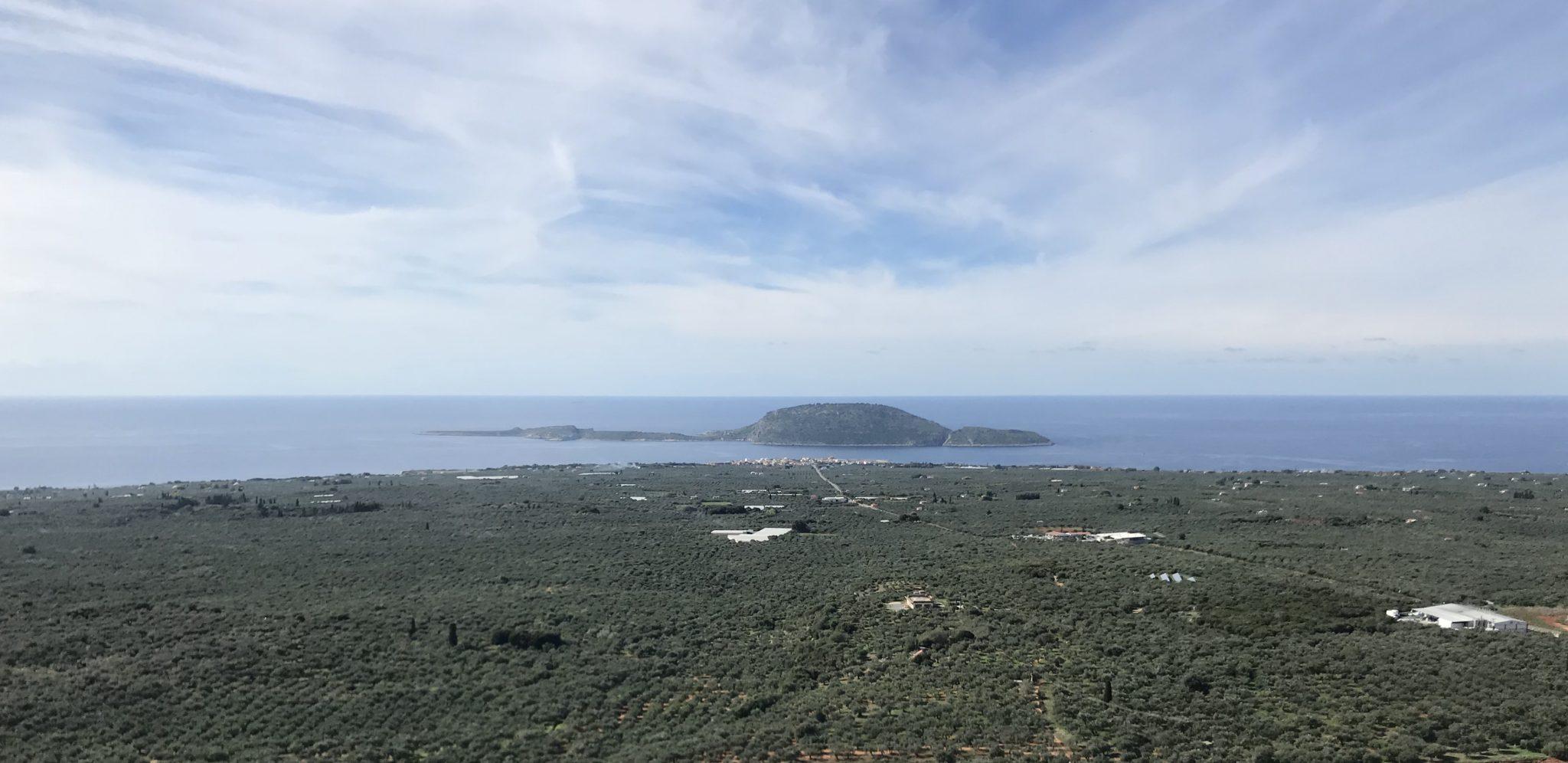
Over the years, the Gyftakis family has been planting and cultivating heirloom Koroneiki olive trees, continuously perfecting their techniques and craftsmanship.
These days, they find themselves making artisanal monovarietal olive oil with a holistic production approach, ensuring that the end result is always on par with the highest standards.
“In a crowded marketplace, we provide fresh, authentic extra virgin olive oil with a transparent harvest date and origin, produced from an independent farm,” Gyftakis said. “Many consumers have never actually enjoyed truly fresh extra virgin olive oil – one that has not been adulterated or mixed with oils from different harvest years, different regions, different varieties of olives or raised without heavy pesticides and irrigation.”
“We control the growing, harvest, pressing and bottling, achieving a high quality that you can taste,” he added. “We process the olives in small batches and store the olive oil in our wine cellars on the farms. The land, cold pressing, growing and storage techniques have been passed down from one generation to the next.”
For Little Gypsy, harvesting the olives is not labor but an opportunity for a feast, with the whole family traditionally working together to complete the job in time.
The time is right for building a brand for a new generation.
“We begin the harvest as a family – extended family as well – and we help to harvest each family plot, calling on some outside help during the harvest weeks,” Gyftakis said. “We view it as tradition, so we eat, drink and even cook in the fields during this time.”
“This year, harvest will be particularly family-oriented as outside workers will not be helping as much, with Covid-19 preventing many from traveling during the harvest,” he added. “We will be calling in lots of favors. Covid-19 will pose serious challenges to the harvest overall in Greece as outside help with the harvest is limited.”
Most days during harvest, the carefully-selected olives arrive at a small, local mill for processing well before nightfall. Gyftakis said the result is a nutritionally superior extra virgin olive oil, high in amino acids and polyphenols, yet low in acidity with a delicate earthy flavor and a full nutty, artichoke finish.
“I think most people do not realize that it can take more than 11 pounds (five kilograms) of olives, cultivated over the course of an entire year, to produce just one bottle of our Gypsy Farms extra virgin olive oil,” Gyftakis said. “The flavor achieved can be as sophisticated as a fine wine – without the snobbery.”
Devotion and hard work have paid off for Gyftakis, who earned a Gold Award at the prestigious 2020 NYIOOC World Olive Oil Competition last May.
Taking pride in his accomplishment, he feels that the credit he received for his Little Gypsy Koroneiki oil is of the utmost importance for small producers.
“Winning a Gold Award has been an amazing recognition,” he said. “We work all year to produce a harvest that comes only once so it is a long time in the making.”
Gyftakis believes the international competition provides excellent opportunities to educate the public on what it takes to craft high-quality extra virgin olive oil.
“Educated consumers are waking up to countless ‘extra virgin’ olive oils that are mislabelled and sold at exceedingly low cost,” he said. “I think the more people learn about olive oil, the more they understand what goes into creating a quality product.”
After his triumph at the 2020 NYIOOC, Gyftakis is hardly resting on his laurels. The success of Little Gypsy Farms has not changed his dedication to promoting healthy eating and natural food production.
“Over time, we have become disconnected from the food we consume, so preparing meals for yourself gives a new sense of health awareness,” he said. “The pandemic has more people cooking from home, experimenting in the kitchen and curious to elevate their eating habits.”
“Consumers want to connect with independent farm brands that sell directly from the source,” he added. “While it has been an amazing year of growth for the company, we have stayed true to our roots sharing healthy, pure oil with consumers who care about quality, taste and health. We look forward to incorporating Little Gypsy Farms as a staple on the kitchen counter.”
From a wider perspective, Gyftakis believes that authentic Greek cuisine has great potential in many of the world’s largest consumer markets, especially as the Mediterranean lifestyle becomes increasingly popular.
“We have seen the success of Italy over the decades, capitalizing and raising awareness on a ‘Made in Italy’ brand, which has been great for consumers and the country exporting its traditional food products,” Gyftakis said.
“As for the Greek olive oil sector, we think the time is right for building a brand for a new generation,” he added. ”Greece has become a symbol for a healthy Mediterranean diet, as people learn about the benefits of enjoying authentic products created by passionate growers.”
“We have witnessed the exponential growth in the United States of staples, such as the Greek yogurt, over the years and we see an opportunity to share the same kind of enthusiasm for a Mediterranean lifestyle with our Little Gypsy Farms extra virgin olive oil.”


